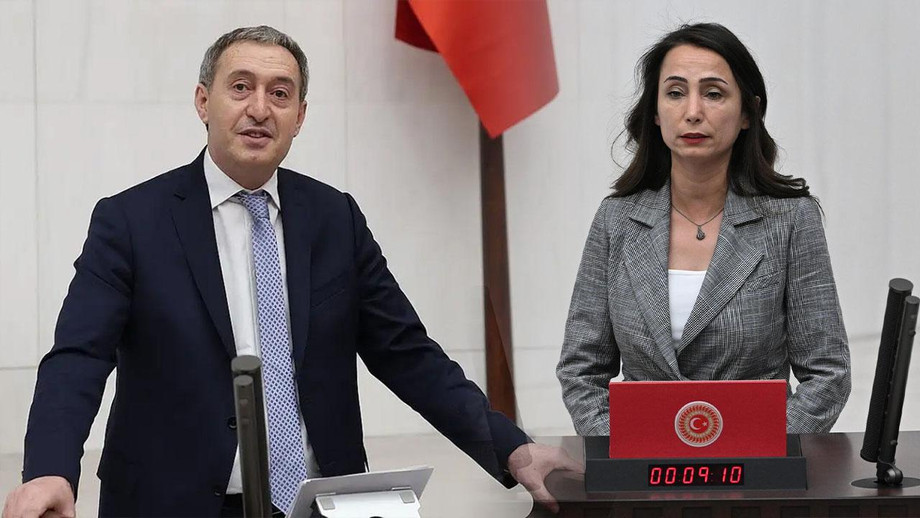During budget debates, Turkey's pro-Kurdish DEM Party leaders Tuncer Bakırhan and Tülay Hatimoğulları called for peace, equality, and urgent reforms, condemning systemic economic disparity and advocating for Turkish-Kurdish dialogue, while stressing the pivotal role of Öcalan’s freedom.
Tuncer Bakırhan and Tülay Hatimoğulları, co-chairs of Turkey’s pro-Kurdish Peoples’ Equality and Democracy (DEM) Party, delivered compelling speeches during a heated budget debate in Parliament, calling for urgent reforms to address economic disparities, the release of imprisoned Kurdish leader Abdullah Öcalan, and the pursuit of peace through Turkish-Kurdish dialogue. Their criticisms of the ruling Justice and Development Party (AKP) centred on policies they described as deepening inequalities and fuelling conflict, both domestically and regionally.
Bakırhan set the tone by warning of escalating instability in the Middle East, which he described as a “gathering storm”. He criticised Ankara’s confrontational stance toward Kurdish governance in Syria, arguing it undermined regional peace and Turkey’s interests. “Turkey must abandon hostility towards Kurds and embrace peace through dialogue,” Bakırhan said, urging the government to foster alliances based on mutual respect. He invoked the “Eşme spirit,” referencing the 2015 collaboration between Turkish forces and Kurdish fighters during the relocation of the Suleyman Shah Tomb, as a model for reconciliation. “The Kurdish people are not a threat; they are an opportunity for peace,” he declared.
Bakırhan detailed historical instances of failed peace efforts, including the Özal administration’s overtures in the 1990s and the 2013-2015 Dolmabahçe Agreement, lamenting the state’s repeated inability to transition from denial to dialogue. “Each missed opportunity for peace has entrenched division and despair,” he said, stressing that Öcalan’s release could mark the beginning of a new chapter for Turkish-Kurdish relations. “The key to peace lies in freeing Öcalan and breaking the isolation that symbolises this country’s refusal to solve its most pressing issue.”
Shifting the focus to economic justice, Hatimoğulları delivered a blistering critique of the AKP’s fiscal policies, accusing the government of prioritising corporate profit over public welfare. “This budget is not for the people,” she said, citing rampant poverty, rising costs, and the erosion of social safety nets. Hatimoğulları highlighted the human toll of neoliberal policies, pointing out that millions live below the poverty line while a handful of conglomerates prosper. “Women, workers, and the marginalised are invisible in this budget,” she asserted.
Hatimoğulları underscored the interconnectedness of economic justice and democratic reform, arguing that a fairer distribution of resources and power is essential to securing Turkey’s future. “Turkey’s survival depends on building a system that prioritises people, not profits, and peace over conflict,” she concluded.
Both leaders argued that addressing the Kurdish question is inseparable from broader reforms needed to stabilise Turkey. Bakırhan called for a new constitution that guarantees equal rights for all ethnic and religious groups, while Hatimoğulları emphasised the importance of grassroots economic policies, including wealth redistribution and public ownership of essential services.
The speeches, delivered against the backdrop of mounting economic and political crises, resonated with opposition lawmakers and drew rare applause from across the parliamentary aisle. However, the ruling party’s muted response suggested that the path to implementing such reforms would face significant resistance.
By linking Turkey’s economic woes to its ongoing Kurdish conflict, Bakırhan and Hatimoğulları presented a holistic critique of the country’s governance. Their proposals—anchored in dialogue, equality, and justice—offer a stark alternative to the status quo, challenging both the government and broader Turkish society to reconsider entrenched policies and narratives.


